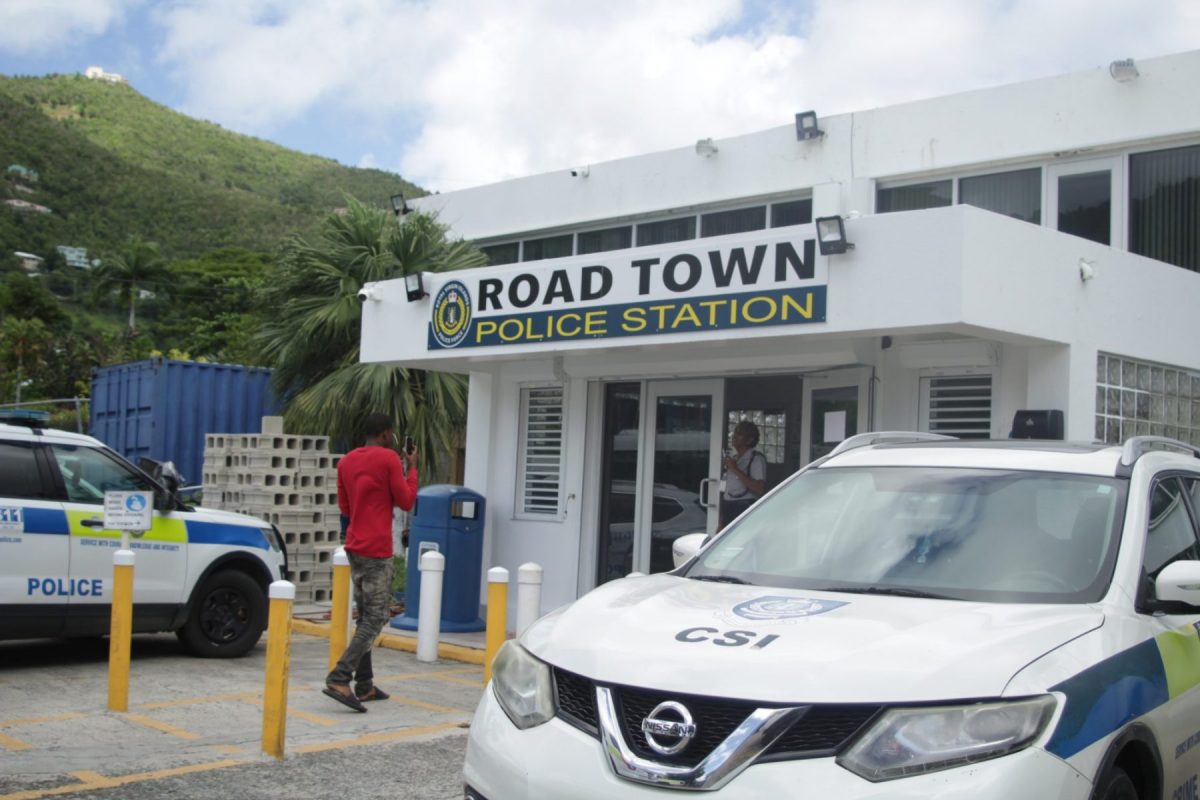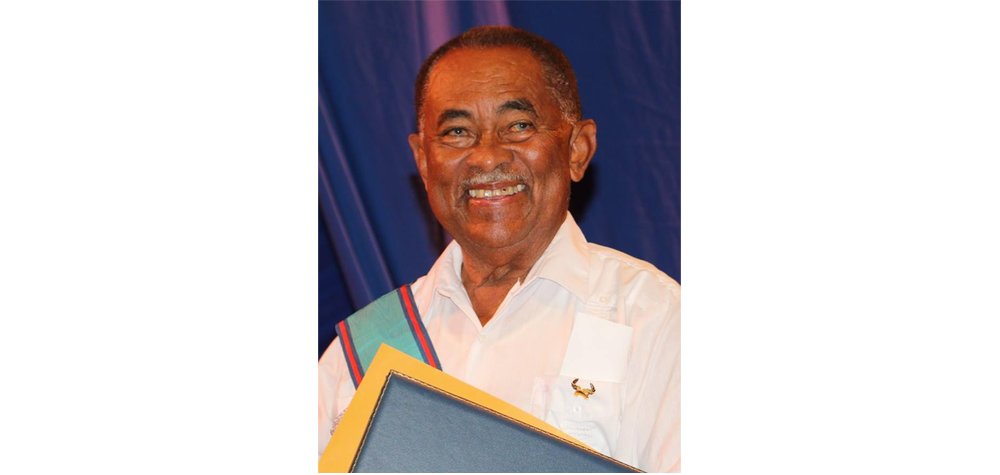

Claiming that corruption and organised crime have seriously undermined security in the Virgin Islands, the second volume of a scathing law-enforcement review lays out a 10-year reform plan that would see the governor claw back devolved responsibilities for areas such as customs, immigration and financial investigations.
Governor Daniel Pruce welcomed the review, but it drew sharp criticism from elected leaders including Premier Natalio “Sowande” Wheatley, who described proposals to boost the governor’s reserved powers as “colonialism” on par with the United Kingdom’s threat to implement direct rule after the 2022 Commission of Inquiry report.
The 281-page volume, which was prepared by His Majesty’s Inspectorate of Constabulary and Fire and Rescue Services in the United Kingdom, includes 375 recommendations to be carried out over the next decade to rectify longstanding neglect by the VI and UK governments alike.
“While we recognise there are finite resources, this road map addresses historic underfunding in the British overseas territories across the law-enforcement and criminal justice sectors,” HMICFRS Chief Inspector Andy Cooke wrote in the UK-funded report, which follows the June publication of a first volume of shorter-term recommendations. “Significant strategic investment will be needed to modernise agencies’ facilities and equipment, which have been under-invested in for decades. And further investment is needed to develop agencies’ capabilities and capacities to an acceptable standard.”
Rectifying such problems, the report states, is a shared project that must be carried out over time and closely monitored with regular reviews.
“While recognising the responsibility of the government of the Virgin Islands to make a substantial financial investment for improved public services in the BVI, the UK government should also make a significant contribution,” the report adds.
‘Delivery plan’
Shortly after Mr. Wheatley tabled the volume in the HOA on Tuesday, Mr. Pruce announced that two “experts” hired to help deliver the reforms are already at work on a “delivery plan.”
“By improving the governance and oversight of law enforcement agencies, we will be better equipped to tackle crime, including international organised crime; protect our borders; halt the flow of illicit finance; make the criminal-justice system more efficient; and protect vulnerable people, while safeguarding fundamental rights and freedoms,” he said.
Mr. Wheatley acknowledged Tuesday that the review was long overdue, and he claimed that the blame for law-enforcement shortcomings lies with the UK and successive governors responsible for the territory’s security.
“This type of law-enforcement review should have been done decades ago on a regular basis,” the premier said, adding, “The United Kingdom government should have exercised more diligence, more oversight, more responsibility. They had a constitutional responsibility to do that. And that was a responsibility that they neglected.”
But like other legislators, the premier also sharply criticised some of the report’s most fundamental recommendations, taking particular aim at changes that would expand the governor’s powers.
Guv’s responsibilities
In its early pages, for instance, the report calls for top down reforms to certain governance systems.
“The current governance arrangements for the BVI’s law enforcement and criminal justice bodies don’t provide a sound bedrock for the far-reaching reforms we recommend are necessary to modernise the criminal-justice and law-enforcement sectors over the next ten years,” the report states.
To help address this issue, the review recommends clarifying the governor’s constitutional responsibilities. Though the 2007 Constitution states that his reserved powers include “internal security, including the police force,” it doesn’t explain what is encompassed by the term “internal security,” the reviewers noted.
Accordingly, they recommended that the governor’s reserved powers should also include responsibility for His Majesty’s Customs, the Financial Investigation Agency, the Department of Immigration, and the prison service — remits that have been at least partially devolved to the VI government.
To this list, the reviewers added new bodies that they recommend establishing: a Maritime Security Law Enforcement Agency; a Customs and Border Agency that combines the existing customs and immigration departments; a Bureau of Financial Investigation; an Anti-Corruption Agency; and intelligence bodies.
Though the report suggests that this recommendation would not require a constitutional amendment, it leaves open the possibility.
“If simply clarifying what is within the remit of internal security is insufficient, then the governor should consider amending section 60(3) of the Constitution,” the review states. “This should stipulate that the governor has reserved responsibility for internal security, including law enforcement and criminal justice matters, and agencies and bodies that perform law-enforcement and criminal-justice functions.”
‘Rise up and say no’
This recommendation drew sharp criticism from the premier and other HOA members.
“I don’t blame His Majesty’s inspector for their view, but the people of the Virgin Islands must rise up and say no,” the premier said. “We will not give more responsibility to the governor. We will not take areas which have been devolved to the elected government — customs, immigration, financial intelligence agency, all the other bodies which are here — we will not give responsibility of those bodies to the governor. That’s taking us in the wrong direction. That is taking us backwards.”
Instead, the premier recommended moving in the other direction.
“The police, the prisons, internal security should be under the responsibility of the elected government,” he said. “It should be the opposite of what is being suggested here.”
Opposition Leader Myron Walwyn spoke similarly.
“Even though section 60 [of the Constitution], in my opinion, might be on the side of the report and on the side of the governor, the proper thing to do for our country at this stage in 2025 is to devolve as much power as you can to the local government and work with the local government to make sure that the things are done properly,” Mr. Walwyn told the HOA on Tuesday.
National Security Council
HOA members also criticised related recommendations concerning the National Security Council.
The review claims that the NSC in its current form “isn’t taking a sufficiently holistic approach” and recommends broadening its role and reconfiguring its structure.
“Under this model, the NSC would bring leaders of the BVI’s law-enforcement and criminal justice bodies together with the governor and the premier,” the review states.
To support the NSC, the report also calls for another step that appears likely to further expand the governor’s powers: the creation in the Governor’s Office of a National Security Secretariat and a director of national security to lead it.
The secretariat’s team should be drawn from existing resources in “relevant organisations” in the VI, and funding should be allocated by the finance minister, according to the review.
Mr. Wheatley, however, took issue with this plan.
“Madam Speaker, they suggest that all of these areas should be moved under the ambit of the governor — the unelected governor — and that we should reconstitute the National Security Council to provide oversight for all of these bodies,” he said. “Madam Speaker, that is taking us in the opposite direction.”
Corruption?
Also during the Tuesday HOA meeting, Mr. Walwyn questioned statements in the review about the level of corruption and crime in the VI.
Quoting from the report, he read, “Stability and security in the BVI are undermined by local serious crime and corruption and transnational organised crime (including financial crimes). Ineffective law-enforcement and criminal-justice processes compound poor border security. These problems present considerable challenges to the UK as well as the international community.”
After reading the section aloud, Mr. Walwyn said, “Where is this widespread corruption? Where is it? Where is there serious organised crime? … That’s some serious statements. And, Madam Speaker, those types of statements hurt the BVI.”
Mr. Walwyn went on to say that the actions of former premier Andrew Fahie, who last year was sentenced to more than 11 years in United States federal prison for conspiring to smuggle cocaine through VI waters and into the US, were done outside of government.
“You can’t include the issue that happened with Honourable Fahie as something that is of the government,” Mr. Walwyn said. “That is something that happened separate and apart from the institution of government.”
Other recommendations in the review offer specific suggestions for law-enforcement and justice agencies including police, immigration, customs, prosecutors and the courts.
The review summarises its broad aims under six headlines: “improve governance and oversight of law-enforcement and criminal-justice organisations;” “tackle international organised crime and protect the BVI’s borders;” “tackle illicit finance;” “make the criminal justice system more efficient;” “tackle corruption and improve conduct and standards;” and “protect vulnerable people and safeguard fundamental rights and freedoms.”
To monitor progress with the reforms, the report calls for a “formal process of external progress reviews.”
“We recognise the scale of reform and modernisation that our review has recommended and the challenges this will pose to the government of the Virgin Islands and BVI agencies,” the review states. “It will require progress reviews and refinement of the plan as circumstances change and the impact of early changes becomes apparent.”
On Tuesday, Mr. Wheatley agreed that regular reviews should be implemented.
“Some of the recommendations in here [are] for some level of inspections that should happen on a regular basis,” he said, adding, “Why has that not existed before?”
Deputy Premier Julian Fraser and opposition member Mitch Turnbull also contributed to the Tuesday HOA debate, which lasted more than six hours. The House then recessed with plans to resume today at 10 a.m.
Also on Tuesday, the governor said he will relaunch the stalled recruitment campaign for a new police commissioner “very soon.”
“This will be a rigorous selection process based on a new person specification, updated in line with the recommendations in this report,” he said. “We will be looking for a leader who can deliver transformational change in a complex organisation.”




